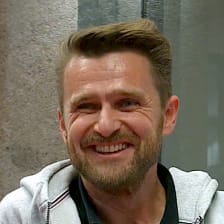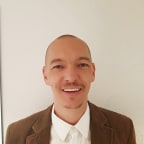TechLead-Story: Bernd Pichlbauer, CEO & Co-Founder at TimeTac

Bernd Pichlbauer
Team
"My name is Bernd, and I am the CTO, CEO, and co-founder of TimeTac. For over ten years now, TimeTac has been one of the leading providers of time tracking and absence management software solutions as a service. We are particularly proud that our high-quality software, precisely and reliably supports every employee and entrepreneur in using one of the most valuable resources in life - time - optimally."
How big is your dev-team? How does the team, split up into positions, look like?
TimeTac now employs over 55 employees, more than 20 of which are developers with a rising trend upwards. We are organized into 5 development teams: 2 full-stack web teams working on our web client, a native apps team for our native iOS and Android apps, a platform team developing the backend, and an integration team connecting TimeTac to other applications via automated interfaces. In addition, there is an independent DevOps team for infrastructure and continuous integration and delivery.
How is your dev-team organised and why have you chosen a specific organisation? What are the advantages and disadvantages?
Here at TimeTac, we're constantly striving to improve and develop ourselves further. Retrospectives conducted on a regular basis enable us to assess our processes and adapt them to our needs. Our full-stack web teams work using Core Scrum with two-week sprint cycles. Scrum fosters transparency and the short feedback loops help us reduce risks. The other teams use a Kanban-based approach which has, in practice, proven to be very efficient.
In addition to our development teams, we have what are known as Communities of Practice where every developer can participate. These are special interest groups, for example for Frontend, Backend or Security. Our Communities of Practice promote team-wide learning, innovation as well as solidarity and cohesion between the individual teams.
What makes your team, in comparison to other teams, special?
What I am really proud of is our company culture based on mutual respect and trust. Our colleagues are highly motivated and always give their best. Helpfulness is very important to us, as is modesty and the willingness to learn something new. We try to create a productive work environment that promotes concentration and where you are less distracted if you do not want to be. Of course, there is a comfortable lounge area available for breaks with a nice couch for resting or for those who want to relax actively and joyfully - like with a game of ping pong!
Recruiting
How is your dev-department integrated into the recruiting process?
The entire recruiting process is controlled by our HR team in cooperation with our development teams.
They work on writing job descriptions together; going to job fairs to represent Timetac; inviting possible candidates to interview and conducting said interviews.
Development teams responsible for specific subject areas prepare interview questions and organize coding challenges for candidates. This allows dev-teams to be involved in the recruiting process as early as possible. We prioritize this because it is very important to us that future team members fit well into the dev-teams they will be joining, as well as into our company culture. Creating a respectful and creative working atmosphere for our employees is important to us because we know that they are key to our long-term success.
Is there a specific procedure for new colleagues? How are they integrated into the team?
A standardized onboarding program helps new colleagues quickly find their way with us. The focus is not only on the tech stack in their own team, but it is also important for us to be able to give a good overview of the entire company. It may be unusual for some colleagues to participate in a sales webinar as part of the onboarding process. But it is important to us not to work in bubbles, but that we understand each other and can work well together.
We believe that Learning by Doing is one of the keys to successful learning, so training and real junior jobs go hand in hand.
It is self-evident that the direct supervisor takes the time during the onboarding phase to ensure a good arrival of new colleagues and professional support. In addition, each new employee is initially also assigned a buddy. The buddy can and should ask questions for which there is still no content in our wiki and which one might not want to ask the direct supervisor - namely questions about corporate culture or subtle processes such as: "Can I really just play table tennis when I need a break, even if my supervisor is working around the corner?" :)
Regular team lunches, or a short game of table football, darts, billiards or the like during breaks of course also help to feel comfortable with us quickly.
What else do you value in addition to professional qualifications when looking for developers for your team?
It is well known to us that our tech stack is demanding. Since we are constantly evolving, it is important to us that our colleagues enjoy learning and are interested in new things. The fit to our company culture must also be right - we are looking for team players who like to work together in a multinational team. English is a requirement. It is our corporate language and by now we already have more than a dozen nationalities represented in our TimeTac family.
Technologies
What technical challenges do you see ahead of you?
The only constant in software development is change. We are constantly striving to use the latest technology. The challenge with a product as large as TimeTac is finding the right time to introduce new technology. We have an ever-growing user base that uses TimeTac on a daily basis.
With what kind of technologies do you work?
JavaScript, React, Redux, HTML and CSS - frontend web development
Java, Objective C, Swift - native applications
PHP (Symfony), MySQL, Redis - backend REST API development
Codeception, Jest, Selenium - automated testing
Debian - deployed operating systems
Jenkins, GitLab, Docker - continuous integration and deployment
PHP, Python, Bash, Go - scripting and automation
Elasticsearch, Logstash, and Kibana (ELK stack), Prometheus - monitoring
Ansible - configuration management and provisioning
How has the technology of the company changed since its founding?
Since our founding, a lot has changed in terms of technology. Although PHP has remained as the backend language, the originally self-developed framework has been migrated to Symfony.
Our two fullstack teams are currently working on the migration of the webfrontend from Ext JS Sencha to React.
Stability and continuity for our existing customer base is the most important thing for us.
Continuous Integration and delivery have seen many changes. Where we once used Jenkins and Bash scripts, much of that work is now done in Python and Go. Gitlab-Runner has made our lives much easier and Docker has become a staple in our everyday work.
Dev Interview Info








































